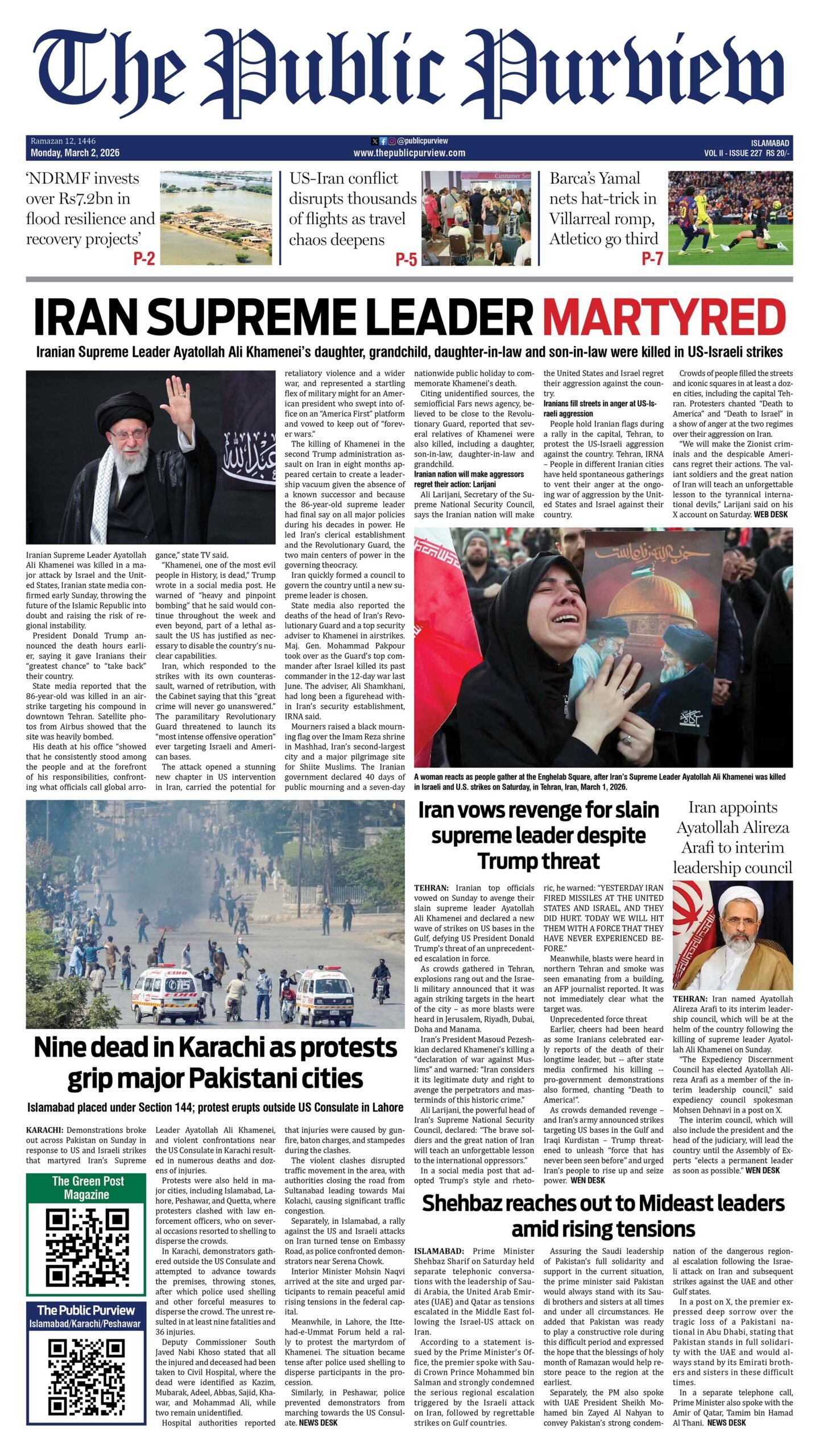Tensions between Pakistan and Afghanistan have once again surged, threatening not only bilateral ties but also the fragile security architecture of the broader South and Central Asian region. At the heart of Pakistan’s border Crisis is the Afghan Taliban regime’s failure to prevent its territory from becoming a staging ground for cross-border militancy. Despite repeated diplomatic overtures and humanitarian gestures from Islamabad, the latest wave of attacks—many carried out by the banned Tehrik-i-Taliban Pakistan (TTP) and its affiliates—has forced Pakistan to respond decisively. These actions are not acts of aggression; they are acts of national defense, rooted in the right to protect sovereignty and civilian lives.
The conflict escalated sharply in October 2025, when a series of coordinated attacks targeted Pakistani security posts in North Waziristan and other border regions. Suicide bombers, armed infiltrators, and heavy gunfire marked a disturbing shift in tactics. Security sources confirmed that over 100 militants—many allegedly backed or sheltered by the Afghan Taliban—were neutralized in Pakistan’s counteroffensive. These were not isolated incidents. They followed months of rising incursions, targeted killings, and intelligence reports confirming the presence of Khawarij elements operating freely inside Afghanistan. This intensification has turned Pakistan’s border Crisis into one of the most urgent national security challenges of the decade.
The implications of Pakistan’s border Crisis extend far beyond Pakistan’s borders. A destabilized Pakistan-Afghanistan frontier threatens the entire region’s security, from Iran to China and the Central Asian republics. It disrupts trade corridors, fuels refugee flows, and emboldens transnational extremist networks. The China-Pakistan Economic Corridor (CPEC), a flagship regional connectivity project, also faces risks if militancy continues to spill across borders unchecked. In this context, Pakistan’s border Crisis is not just about national security—it’s about preserving regional stability and protecting the economic lifelines that connect South Asia to the world.
Pakistan’s response to the border Crisis has been both firm and responsible. Military operations have targeted terrorist hideouts with precision, avoiding civilian areas and minimizing collateral damage. At the same time, Islamabad has kept diplomatic channels open. A temporary ceasefire was observed at Kabul’s request, and Pakistan has continued to advocate for joint border management mechanisms and intelligence sharing. This dual approach—retaliation against armed threats and dialogue with state actors—reflects Pakistan’s maturity as a regional stabilizer and its commitment to resolving Pakistan’s border Crisis through both strength and diplomacy.
Islamabad’s track record speaks for itself. From hosting millions of Afghan refugees for decades to offering humanitarian aid during crises, Pakistan has consistently prioritized peace over provocation. It has supported intra-Afghan dialogue, advocated for inclusive governance in Kabul, and pushed for regional cooperation through forums like the Shanghai Cooperation Organisation (SCO) and the Economic Cooperation Organization (ECO). Yet, goodwill cannot survive in the shadow of terrorism.
The Afghan Taliban must recognize that sovereignty comes with responsibility. If they wish to be treated as a legitimate government, they must act like one—by curbing extremist factions, honoring border agreements, and respecting Pakistan’s territorial integrity. The presence of TTP and other hostile groups within Afghanistan is not only a threat to Pakistan but a destabilizing force for the entire region. Their ideology, rooted in violence and chaos, undermines the very fabric of Islamic unity and regional cooperation—further deepening Pakistan’s Border Crisis.
Pakistan’s Armed Forces, backed by the resolve of its people and the framework of the National Action Plan, remain committed to defending every inch of the homeland. The sacrifices made by soldiers on the frontlines are a testament to the nation’s resilience. One soldier was martyred and six others injured in Mir Ali during a recent attack, reminding us of the human cost of this conflict. Yet, these sacrifices also reinforce Pakistan’s determination to eliminate terrorism, no matter where it originates.
The path forward for Pakistan’s border Crisis must be anchored in accountability and cooperation. Pakistan should continue to engage regional partners—including China, Iran, and Central Asian states—to pressure Kabul into fulfilling its counterterrorism obligations. At the same time, Islamabad must remain open to structured dialogue with the Afghan Taliban, provided it yields verifiable action against militant sanctuaries. Pakistan’s border Crisis may demand retaliation, but it also requires diplomacy, regional consensus, and a long-term vision for peace. Only then can the region move beyond cycles of violence and toward a future of shared security and prosperity.
Read more expert opinions here at: https://thepublicpurview.com/category/blog/
For climate-related stories, visit: The Green Post







 Today's E-Paper
Today's E-Paper